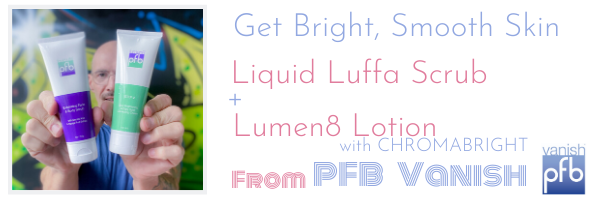Quick Reference Guide To Nutrition For Healthy Skin
By Rachael Pontillo, M.Msc, CIHC, CNAP, LE
Nutrition for healthy skin is one of the first areas to focus on in a skin care consultation. Aesthetic treatments and skincare products focus on cleansing, beautifying, brightening, and overall improving the appearance of the skin, and are limited in scope to the epidermal layers. However, only focusing on the topical aspects of skincare addresses the figurative tip of the iceberg of possibilities in terms of how fast someone sees results, and how long those results last. For faster and more sustainable results, it’s important to look beneath the surface. While aestheticians must remain within their scope of practice, having a basic understanding of nutrition for healthy skin can make a significant impact on how they approach a client’s treatment plan.
7 Supplements For Great Skin
Should You Still Take Vitamins and Other Supplements for Healthy Skin?
In an ideal world, we would all eat healthy, balanced, home-cooked meals made from whole foods three times a day. In reality, however, that doesn’t always happen due to the busyness of life or availability. While dietary supplements are NEVER a substitute for a proper diet, and good quality supplements can be extremely expensive, some people do benefit from taking dietary supplements.
Nutrition For Healthy Skin + Supplements That Are Known to Benefit The Skin are:
- B vitamins such as niacin, biotin, and cobalamin
- Vitamin C (look for l-ascorbic acid)
- Vitamin D3 (best when taken with K2)
- An essential fatty acid supplement such fish oil
- Types 1 and 3 collagen from grass-fed cows
- Hyaluronic acid (liquid form is best)
- Probiotics to support a healthy microbiome
When you combine topical products and treatments, and nutrition for healthy skin, you’ll truly maximize the potential to achieve your desired results faster, and they will last longer.
The Stay Fit – Stay Well Guide showcases a few supplements that Lipgloss + Aftershave has used and enjoy!
How Does Nutrition Impact The Skin?
When discussing nutrition for healthy skin, it’s important to first understand how nutrition impacts the skin.
While it is extremely important to nourish, hydrate, and protect the skin’s lipid barrier, and various cells that reside within the layers of the epidermis (as well as the skin’s microbiome which lives on the surface of the stratum corneum), all cells in the dermal and epidermal layers draw the nutrients they need to form properly from the blood.
While some of the nutrients applied topically can help fortify these cells, the majority of the nutrients that serve as the building blocks of cells (such as fibroblasts, melanocytes, Langerhans cells, Merkel cells, and keratinocytes) and perform cellular functions (such as producing collagen or melanin) come from food via digestion.
Simply put, if the body does not get the right balance of nutrients on the inside from food, it cannot produce healthy, vibrant, functioning cells or strong lipid barrier. This is the reason why focusing on the skin from the outside in produces limited results. This is why someone with a skin issue often experiences flare ups or breakouts when they run out of a product, or why a product stops working after awhile.
How Can You Improve Your Skin Health?
In addition to following the appropriate topical protocols both in the treatment room and at home, it’s necessary to focus on whole foods-based nutrition for healthy skin.
A “whole” food is a plant or animal, which is consumed in a form as close to its whole, living form found in nature. Nutrients introduced into the body in a form as close to whole as possible, with the least amount of processing possible, contain the necessary co-factors for bioavailability and therefore, efficacy. What this means is that the body knows exactly what they are and what to do with them, without risk of taking in too much of one nutrient or having nutrients compete for absorption.
10 Foods That Help You Glow!
Nutrition for healthy skin begins with a balanced whole foods-based diet. A diet that includes the right ratios (for the person’s individual needs) of macronutrients: healthy fats, protein, and carbohydrates; and micronutrients: vitamins, minerals, amino acids, fatty acids, and antioxidants. While there are a multitude of fruits, vegetables, healthy fats, whole grains, and proteins that contain skin-healthy nutrients, here are some that are particularly beneficial:
Fatty fish such as wild-caught salmon, sardines, and anchovies.
Avocados
Nuts and seeds such as walnuts, sunflower seeds, chia seeds, and flaxseeds
Sweet potatoes, and other orange vegetables
Tomatoes and red and yellow bell peppers
Dark chocolate
Green tea
Red and black grapes
These are known specifically for containing high amounts of resveratrol, which is a well-known antioxidant that has been associated with skin benefits. They are also high in Vitamin C, and do contain beta carotene, albeit in a lower concentration than some of the aforementioned foods.
Dark leafy green vegetables
Bone broth
Talk To Your Doctor First
Learning about nutrition for healthy skin is a very positive action step to take. However, before making any changes to your diet or adding supplements to your regimen, you should always consult your physician. If you want to incorporate nutritional recommendations in your practice, be sure you understand the laws within your state regarding licensure and scope of practice.
Looking For Seasonal Skin Care Suggestions?
Yes, nutrition for healthy skin begins with what you eat, be sure to give your skin the best skin care products it needs on a seasonal basis. The Lipgloss + Aftershave Seasonal Skin Care Guides are a great place to get a recap of every seasons must haves!

Guest Blogger – Rachael Pontillo
Rachael Pontillo is a holistic skincare innovator, author, and educator. She is the bestselling author of the book Love Your Skin, Love Yourself, The Nutritional Aesthetics Practitioner® Foundational Curriculum textbook, and co-author of The Sauce Code. She’s a functional nutrition practitioner, AADP and IAHC Board Certified International Health Coach, licensed aesthetician; and natural skincare formulator and educator. She’s the president and co-founder of the Nutritional Aesthetics® Alliance, and creator of its Certified Nutritional Aesthetics Practitioner® Training Program. She is also the creator of the popular skincare and healthy lifestyle blog, Holistically Haute™, as well as the much-loved online course, Create Your Skincare®, and its exclusive Skin Sequencing® Method. Rachael also holds additional certifications in metaphysical science, detoxification, cosmetic chemistry, acupressure, Reiki, Medical Qi Gong, Chinese Facial Diagnosis, and Ayurveda. She’s an avid herbalist, skincare ingredient connoisseur, and lifelong learner.



